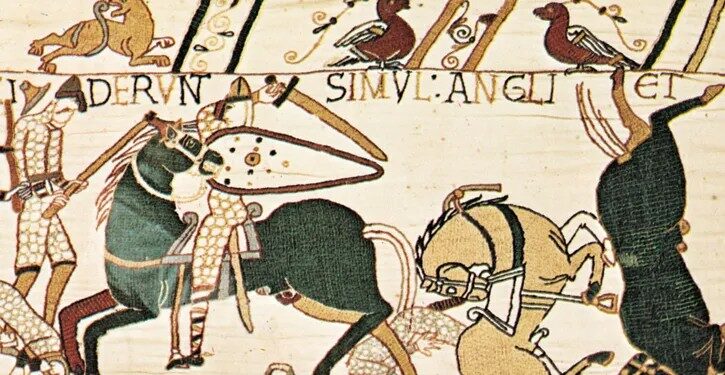The Battle of Hastings: A Turning Point in English History
The Battle of Hastings, fought on October 14, 1066, stands as one of the most pivotal moments in English history. This conflict not only decided the fate of the English crown but also ushered in a new era that would reshape the country’s language, culture, and political landscape for centuries to come.
The battle was the culmination of a succession crisis following the death of King Edward the Confessor, who died without a clear heir. Harold Godwinson, a powerful English nobleman, was crowned king shortly after Edward’s death. However, his claim to the throne was challenged by William, Duke of Normandy, who asserted that Edward had promised him the crown.
William, determined to seize what he believed was rightfully his, assembled a formidable invasion force and landed on the southern coast of England in September 1066. Harold, who had just defeated another claimant, Harald Hardrada of Norway, in the north, marched his tired army south to confront the Norman threat.
The two armies met near the town of Hastings. William’s forces, comprising cavalry, archers, and infantry, faced Harold’s army, which consisted primarily of infantry fighting in the traditional Anglo-Saxon shield wall formation. The battle lasted from morning until dusk, with the outcome hanging in the balance for much of the day.
The turning point came late in the afternoon when, according to legend, Harold was killed by an arrow to the eye. With their leader fallen, the English lines broke, and the Norman cavalry charged, routing the defending army. William’s victory was complete, and he earned the epithet “the Conqueror.”
The consequences of the Norman Conquest were profound and long-lasting. William was crowned King of England on Christmas Day, 1066, beginning a new dynasty. The Norman victory led to the replacement of the Anglo-Saxon nobility with Norman lords, the introduction of feudalism, and the construction of numerous castles to consolidate Norman rule.
Perhaps most significantly, the Conquest brought about a linguistic revolution. French became the language of the court and the upper classes, while English continued to be spoken by the common people. This linguistic fusion would eventually give rise to Middle English, the language of Chaucer, and lay the foundation for modern English.
The Battle of Hastings thus marks a watershed moment in English history, the effects of which are still felt nearly a thousand years later. It serves as a reminder of how a single day’s events can alter the course of a nation’s history for generations to come.
newshub



Recent Comments